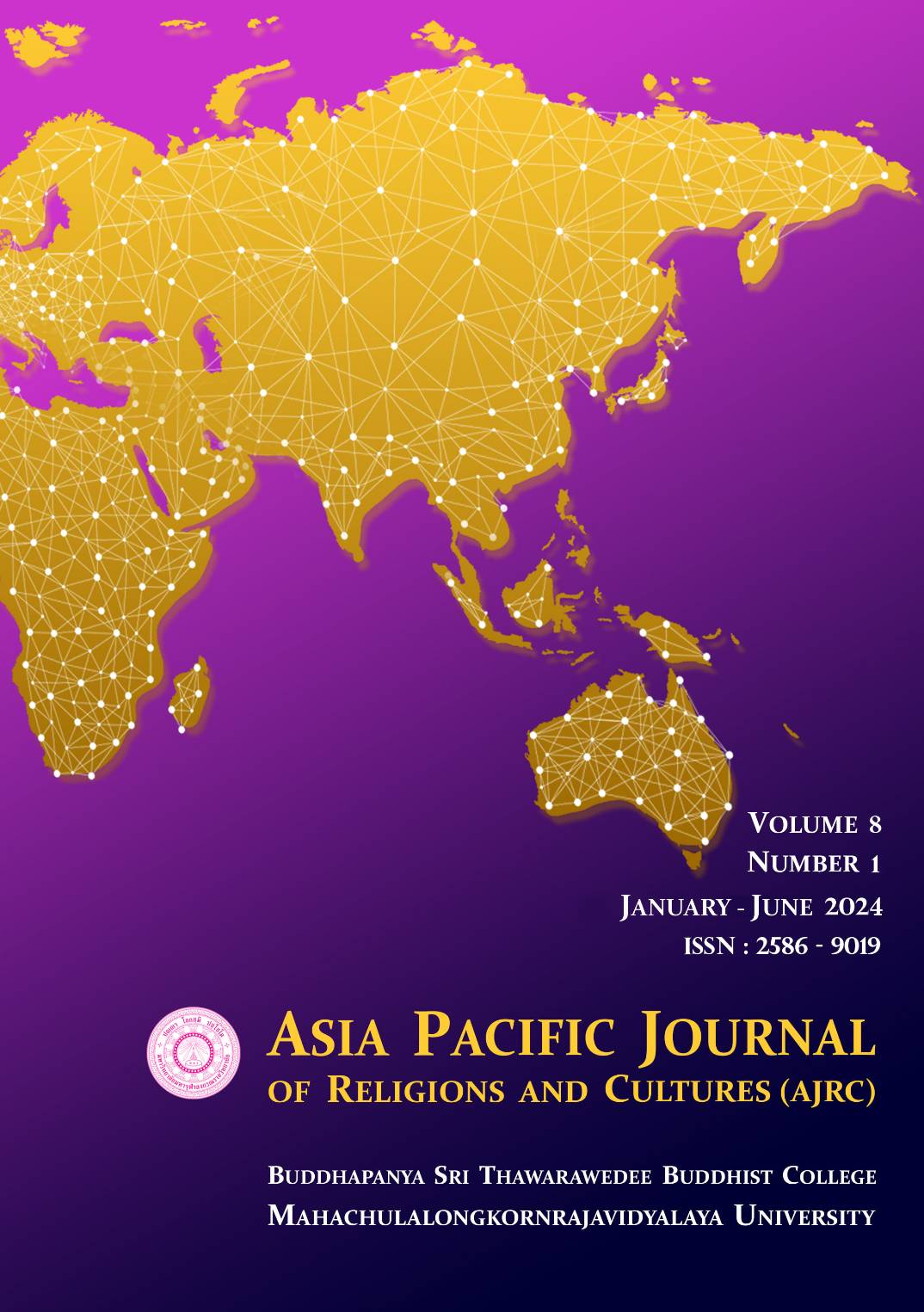A Comparison of Two English Language Instruction Approaches: Task-Based Instruction with Authentic Materials and Presentation-Practice-Production (PPP) Instruction in High School in Thailand
Main Article Content
Abstract
The objectives of this study were twofold: 1) to compare the posttest mean scores of English proficiency tests between students who received task-based instruction with authentic materials and those who received PPP instruction, and 2) to compare the mean scores of students' attitudes before and after receiving task-based instruction with authentic materials. Employing a non-equivalent control groups design, the sample comprised 100 eleventh-grade students from Marie Upatham School during the first semester of the 2024 academic year, selected through purposive sampling. Fifty students were allocated to both the experimental and control groups. The instruments used included eight weeks of lesson plans utilizing task-based instruction with authentic materials, pre-post English proficiency tests, and a questionnaire on students' attitudes toward task-based instruction with authentic materials. Data analysis involved independent-sample t-test and paired-sample t-test. The results indicated that students who received task-based instruction with authentic materials outperformed those who received PPP instruction in posttest English proficiency scores. Furthermore, students' attitudes significantly improved after receiving task-based instruction with authentic materials. This study offered valuable insights into enhancing English proficiency through task-based instruction with authentic materials, providing innovative perspectives for educators and researchers to optimize teaching practices and educational outcomes.
Article Details

This work is licensed under a Creative Commons Attribution-NonCommercial-NoDerivatives 4.0 International License.
References
Alisherovna, K. N. (2023). The usage of authentic materials in teaching a foreign language. International Journal of Literature and Languages, 3(5), 16-19.
Azizi, Z., Rezai, A., Namaziandost, E., & Tilwani, S. A. (2022). The role of computer self-efficacy in high school students’ e-learning anxiety: A mixed-methods study. Contemporary Educational Technology, 14(2), 1–14. https://doi.org/10.30935/cedtech/11570.
Baird, K., & Redmond, M. (Eds.). (2004). The use of authentic materials in K-12 French Program. Winston-Salem, NC: Wake Forest University, Department of Education.
Baker, C. (1992). Attitudes and Language. Multilingual Matters.
Berardo, S. A. (2006). The use of authentic materials in the teaching of reading. The Reading Matrix, 6(2), 60-69.
Bhandari, L. P. (2020). Task-based language teaching: A current EFL approach. Advances in Language and Literary Studies, 11(1) 1-5.
Cronbach, L. J. (1990). Essentials of psychology testing. 5th ed. New York: Harper Collins Publishers Inc.
Ellis, R., Skehan, P., Li, S., Shintani, N. & Lambert, C. (2020). Task-based language teaching: Theory and practice. Cambridge University Press.
Fraenkel, J. R., Wallen, N. E., & Hyun, H. H. (2019). How to design and evaluate research in education. McGraw-Hill Education.
Gall, M. D., Borg, W. R., & Gall, J. P. (1996). Research Methods. In W. R. Borg & D. M. Gall (Eds.), Educational Research: An Introduction (pp. 165–370). New York: Longman.
Hadi, A. (2013). Perceptions of task-based language teaching: A study of Iranian EFL learners. English Language Teaching, 6(1), 103-112. http://dx.doi.org/10.5539/elt.v6n1p103.
Harper, J., & Widodo, H. P. (2020). Perceptual mismatches in the interpretation of task-based ELT materials: A micro-evaluation of a task-based English lesson. Innovation in Language Learning and Teaching, 14(2), 114-132. https://doi.org/10.1080/17501229.2018.1502773.
Heryatun, Y., Sulhah, S., & Fitriana, R. (2023). Need analysis of authentic materials on English language teaching: A study at the second grade of MA. Daarul Ulum Cihara-Lebak. Jurnal Scientia, 12(1), 112-117.
Long, M. H. (2019). A role for instruction in second language acquisition: Task-based language teaching. In Hyltenstam, K. & Pienemann, M. (Eds.), Modelling and Assessing Second Language Acquisition. Clevedon: Multilingual Matters.
Martinez, A. G. (2002). Authentic materials: An overview. Retrieved May 22, 2012, from http://www3.telus.net/linguisticsissues/authenticmaterials.html
Namsaeng, P., & Thuratham, W. (2023). Best teaching and learning approaches through the eyes of Thai EFL preservice teachers. Journal of Educational Issues, 9(2), 17-18.
Nghi, T. T. (2023). Exploring the effectiveness of authentic materials and task-based learning approaches in enhancing English language skills and motivation of Vietnamese EFL learners: A quasi-experimental study. AIJR Publisher. https://doi.org/10.21467/proceedings.150.1.
Nunan, D., & Bailey, K. M. (2009). Exploring second language classroom: A comprehensive guide. Sherrise Roehr.
Prabhu, N. S. (1987). Second Language Pedagogy. Oxford: Oxford University Press.
Pratista, G. Y. (2022). Presentation practice production vs task-based language teaching: A comparison of two teaching templates. Jurnal Edupedia Universitas Muhammadiyah Ponorogo, 7(1), 1-13. http://studentjournal.umpo.ac.id/index.php/edupedia.
Romero-Molina, P. X., & Alfonso-Vargas, J. (2023). Authentic materials and task design: A teaching amalgam for listening. Colombian Applied Linguistics Journal, 25(1), 118-131. https://doi.org/10.14483/22487085.18581.
Sertpunya, S. (2015). Development of English Lessons for Improving Listening and Speaking Skills of Hotel Service Personnel through Task-based Learning activities Case Study JW Marriott Hotel Bangkok. North Bangkok University
Tomlinson, B. (Ed.). (2011). Materials development in language teaching (2nd ed.). Cambridge: Cambridge University Press.
Tsunemoto, A., & McDonough, K. (2021). Exploring Japanese EFL learners’ attitudes toward English pronunciation and its relationship to perceived accentedness. Language and Speech, 64(1), 24–34. https://doi.org/10.1177/0023830919900372.
Willis, J. (1996). A framework for task-based language teaching. New York: Longman.
Wu, X., Liao, L., & DeBacker, T. K. (2016). Implementing Task-Based Instruction in ESP Class: An Empirical Study in Marine Engineering English. Journal of Language Teaching and Research, 7(5), 936-945. https://dx.doi.org/10.17507/jltr.0705.14


